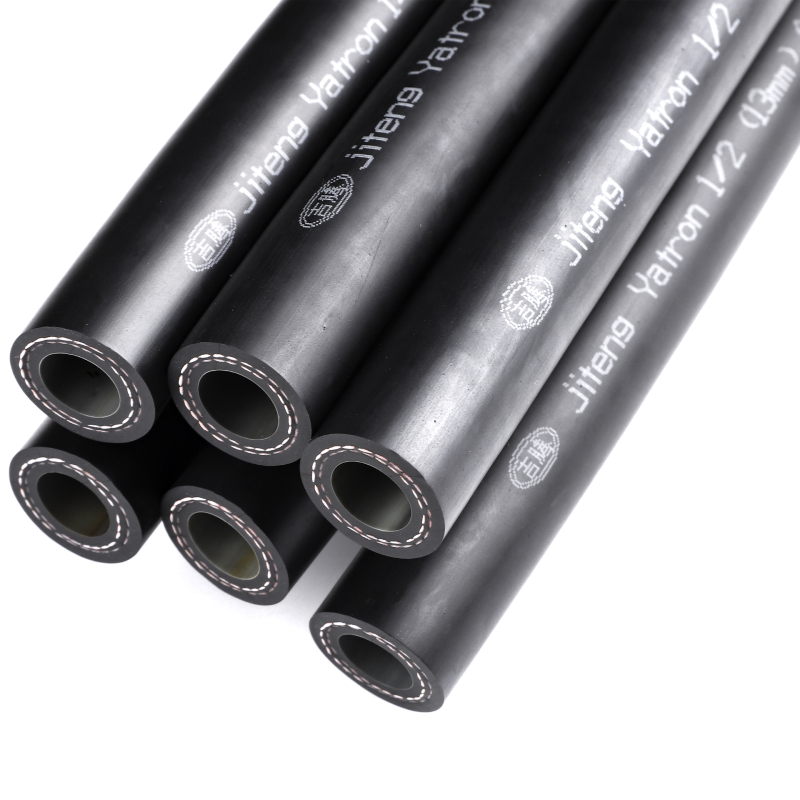petrol fuel hose
Nov . 12, 2024 06:10 Back to list
petrol fuel hose
The Importance of Petrol Fuel Hoses in Automotive Applications
In the world of automotive engineering and maintenance, the significance of petrol fuel hoses cannot be overstated. These hoses serve as vital components in the fuel delivery systems of vehicles, ensuring that petrol is transported from the fuel tank to the engine efficiently and safely. Understanding the function, materials, and maintenance of petrol fuel hoses is crucial for both car owners and automotive professionals alike.
Function of Petrol Fuel Hoses
Petrol fuel hoses perform a fundamental role in the fuel system of internal combustion engines. They are responsible for conveying petrol under pressure from the fuel tank to the fuel pump and subsequently to the engine. Additionally, these hoses must withstand varying temperatures, pressures, and the corrosive nature of petrol. A malfunctioning fuel hose can lead to fuel leaks, which pose significant safety hazards, including fire risks and engine failure.
In modern vehicles, the fuel system is engineered to be highly efficient, and any disruption in the flow of petrol can impact overall engine performance. This emphasizes the need for high-quality petrol fuel hoses that can handle demanding conditions without failing.
Materials Used in Fuel Hoses
The materials used in the construction of petrol fuel hoses are critical to their performance and longevity. Traditionally, fuel hoses were made of rubber, but advancements in technology have introduced synthetic materials that offer superior durability and resistance to the harsh chemical properties of petrol. Common materials include
1. Nitrile Rubber Known for its excellent resistance to fuels, nitrile rubber is frequently used in the manufacturing of petrol hoses. It maintains flexibility while providing a robust barrier against leaks and spills.
2. Polyurethane This synthetic polymer is known for its toughness and flexibility. Polyurethane fuel hoses are often used in high-performance applications where pressure and temperature extremes are common.
3. Fluoroelastomers These materials are exceptionally resistant to heat and chemical degradation. Fluoroelastomer hoses are typically employed in environments where prolonged exposure to high temperatures is expected.
petrol fuel hose

Each material offers specific advantages, allowing manufacturers to choose the best option based on the intended application and vehicle specifications.
Maintenance and Inspection
Proper maintenance and regular inspection of petrol fuel hoses are essential for ensuring their reliability and safety. Over time, hoses can become cracked, brittle, or degrade due to exposure to heat, ozone, and other environmental factors. Here are some important tips for maintaining fuel hoses
1. Visual Inspections Regularly check for signs of wear, such as cracks, bulges, or discoloration. Any visible damage should be addressed immediately to prevent leaks.
2. Check for Leaks One of the most critical safety checks is to inspect for fuel leaks. A strong smell of petrol around the fuel system can indicate a problem. If detected, the vehicle should not be driven until the issue is resolved.
3. Proper Installation Ensure that fuel hoses are installed correctly according to manufacturer specifications. This includes securing clamps and fittings to prevent movement that could lead to kinking or disconnection.
4. Replacement Fuel hoses should be replaced regularly based on the vehicle manufacturer’s recommendations, or at the first sign of degradation. Older vehicles, in particular, may require more frequent checks and replacements.
Conclusion
In conclusion, petrol fuel hoses are indispensable components of automotive fuel delivery systems. Their primary role in transporting petrol not only affects fuel efficiency but also plays a crucial part in overall vehicle safety. Understanding their materials, functions, and maintenance needs is essential for anyone involved in vehicle care. By ensuring that fuel hoses are in good condition, car owners can contribute to the longevity and reliability of their vehicles while minimizing safety risks. As technology continues to evolve, the importance of high-quality petrol fuel hoses will remain a cornerstone of automotive engineering.
